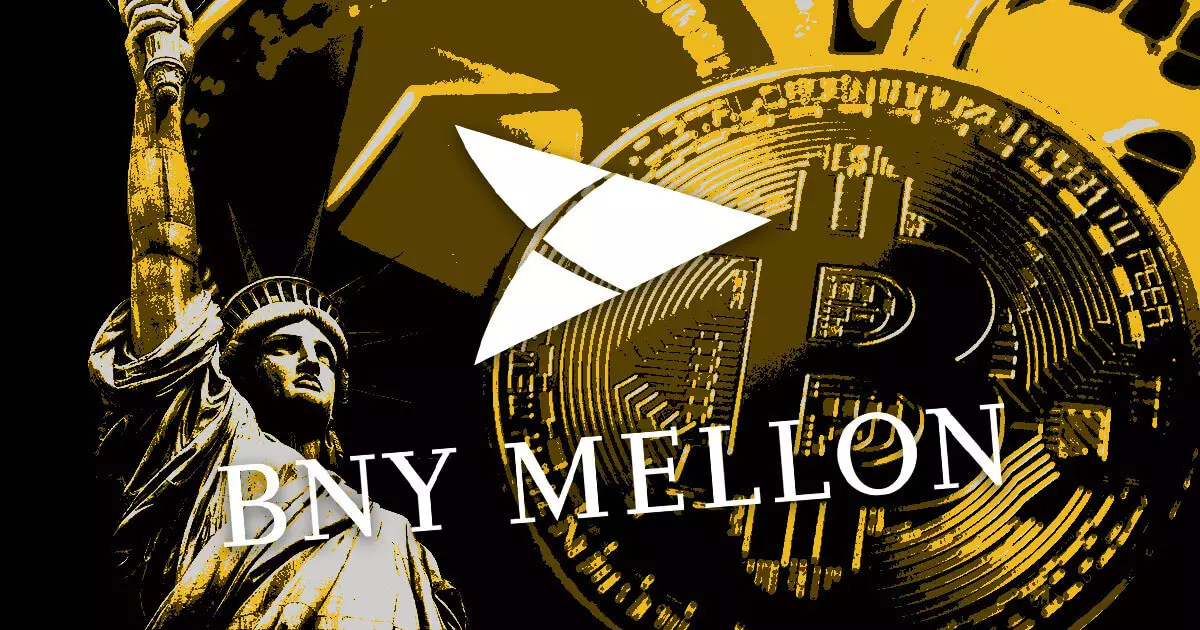BNY Mellon’s recent decision to venture into the crypto custody market represents a pivotal shift in the financial landscape, particularly regarding Bitcoin and Ethereum exchange-traded funds (ETFs). On September 24, Bloomberg News reported that the bank received a significant exemption from the SEC’s Staff Accounting Bulletin 121 (SAB 121). This exemption fundamentally alters how the bank classifies customer crypto holdings, allowing them to be treated as distinct from corporate liabilities. Such a move signals BNY Mellon’s commitment to expanding its footprint within this rapidly evolving marketplace, presenting an opportunity for more traditional banks to explore crypto custody services that were previously deemed out of reach.
Currently, Coinbase reigns supreme in the custody of crypto assets, a stronghold that BNY Mellon is now aiming to challenge. The latter’s strategic positioning within the crypto ETF space has the potential to reshape the market dynamics, especially given that Coinbase handles most of Wall Street’s crypto ETFs, including those related to heavyweights like BlackRock, which manages assets totaling about $10 trillion. With BNY Mellon’s entry, not only would competition in this niche intensify, but clients would also benefit from an expanded array of choices in asset management services. This competitive instigation could drive innovation and better services for institutional investors who have shown increasing interest in diversifying their portfolios with digital assets.
BNY Mellon’s interest in the crypto space isn’t a recent development. It can be traced back to early 2023, when CEO Robin Vince highlighted digital assets as a core component of the firm’s long-term vision during an earnings call. He emphasized growing institutional demand for digital asset services, positioning the bank as a forward-looking institution aware of the shifting tides in finance. Analysts are estimating that the crypto custody market is experiencing an impressive growth rate of around 30% annually, with a current valuation of $300 million. If these trends continue, the market could feasibly exceed $1 billion by 2032. Such growth is not merely speculative; it reflects tangible shifts in how institutional investors perceive and interact with digital assets.
Despite an optimistic market outlook, BNY Mellon’s venture into crypto custody does not come without its challenges. Regulatory scrutiny remains a substantial hurdle. Lawmakers like Congressman Patrick McHenry and Senator Cynthia Lummis have raised concerns regarding the transparency of interactions between the SEC staff and private corporations, particularly in light of the potential private meetings rumored to have taken place regarding the SAB 121 exemptions. It raises pertinent questions about the regulatory framework governing BNY Mellon’s crypto activities and whether their exemption was influenced by behind-closed-doors negotiations. How BNY Mellon navigates this intricate regulatory environment will be crucial for its success in this burgeoning sector.
For BNY Mellon to become a major player in the crypto custody arena, it must not only leverage its exemption from the SEC but also demonstrate agility in adapting to the ever-evolving regulatory landscape. The banking giant’s prospects will hinge on its ability to mitigate risks while capitalizing on the burgeoning demand for digital asset services among institutional investors. This is a critical juncture for BNY Mellon as it expands its services. The firm’s actions in the coming months could have rippling effects across the financial sector, influencing how traditional institutions engage with crypto assets and possibly redefining standards for custodian services in the process.
Ultimately, BNY Mellon’s foray into crypto custody heralds an exciting new chapter in financial services. As digital assets continue to gain traction and acceptance among institutional clients, the traditional banking landscape is poised for transformation, with BNY Mellon standing at the forefront of this evolution. Only time will tell how effectively the bank can leverage its current momentum to outmaneuver competitors and establish a robust presence in the crypto world.


Leave a Reply